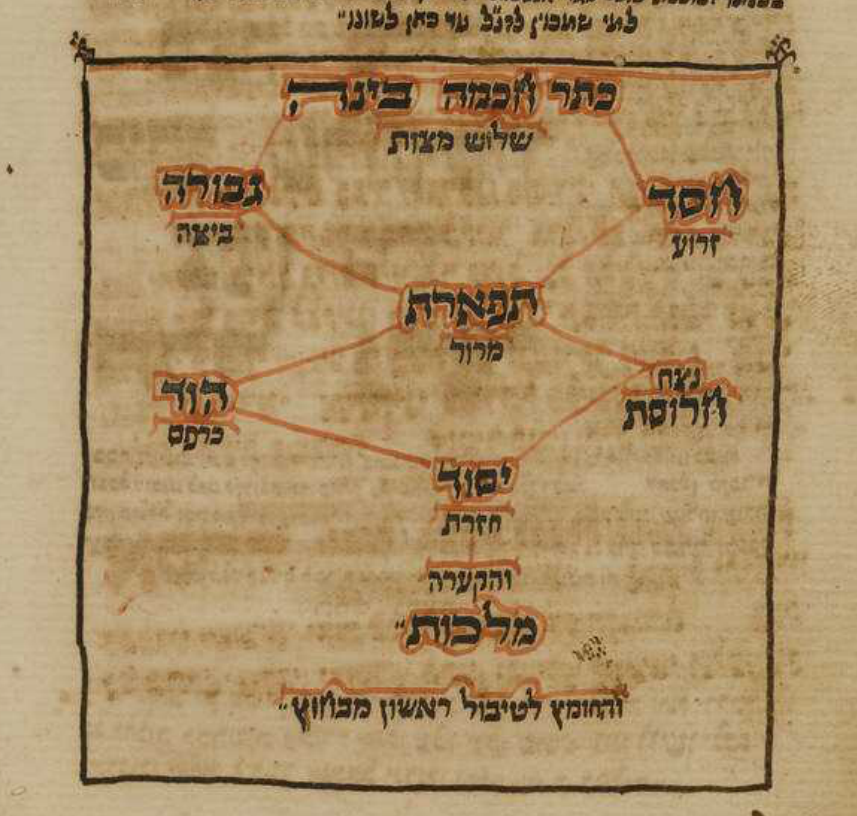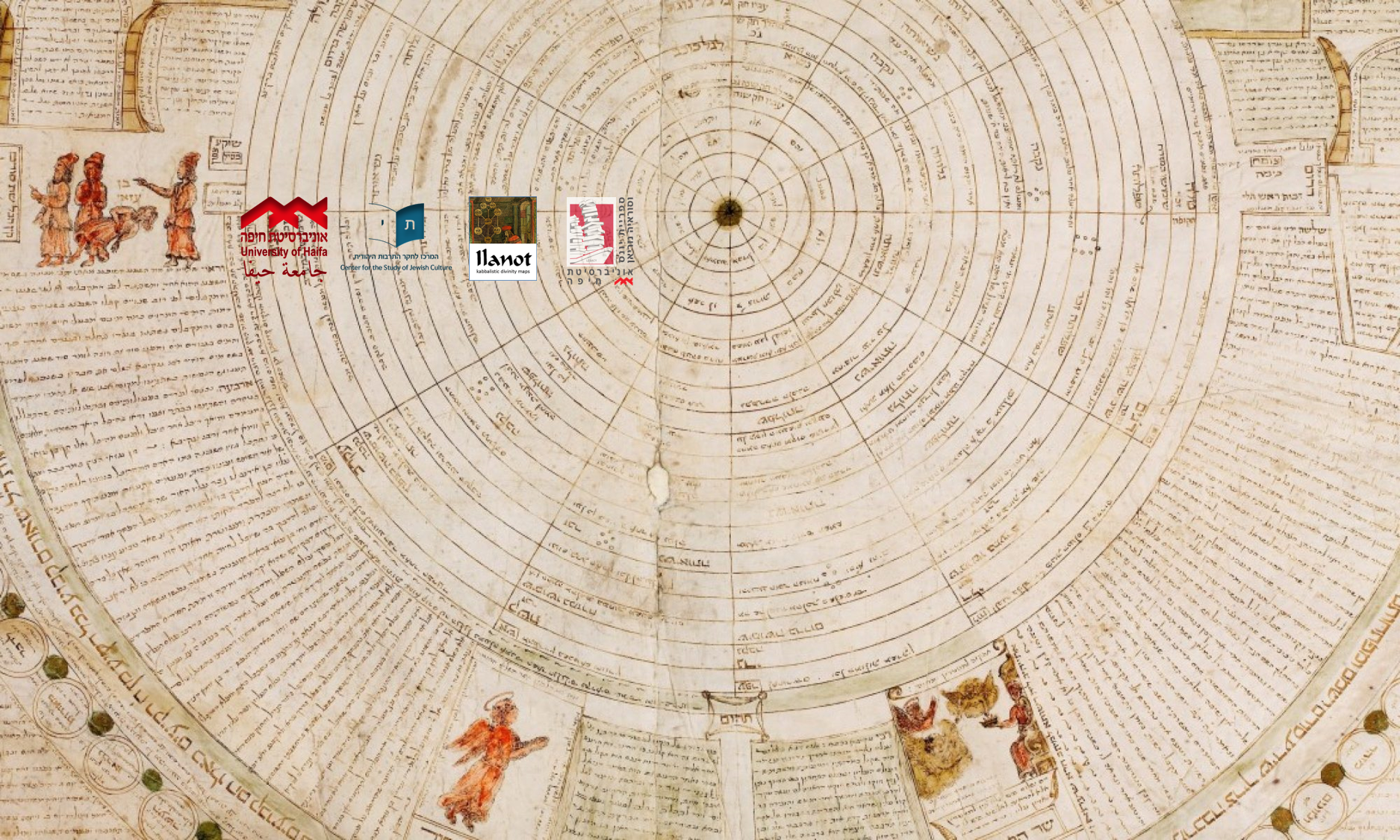Ilanot don’t just (re)present information. In many cases, they are action-oriented, and serve as tools — most commonly to those seeking to pray effectively. In one ritual context — the Passover Seder — we frequently find Ilanot in manuscript Haggadot revealing the ideal kabbalistic spatial array of ritual foods, to be emulated on the Seder table. When enacted, the table itself becomes an Ilan, and the ritual consumption, a unification.
As Passover approaches, the Ilanot Project team will share a few
— beginning with this lovely example taken from a late-nineteenth-century Yemenite manuscript in the Gross Family Trust (YM.011.018). In it, the three highest Sefirot are equated with the three matzot that sit atop the six items on the Seder Plate, arrayed as the six intermediate Sefirot. The plate itself is Malkhut, the lowest Sefirah, and the salt-water (here vinegar) for the first dipping is literally “outside.”
http://primo.nli.org.il/primo_library/…/action/dlDisplay.do…




